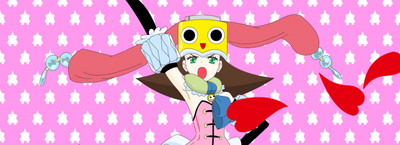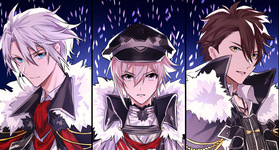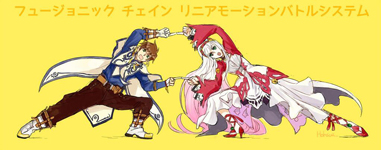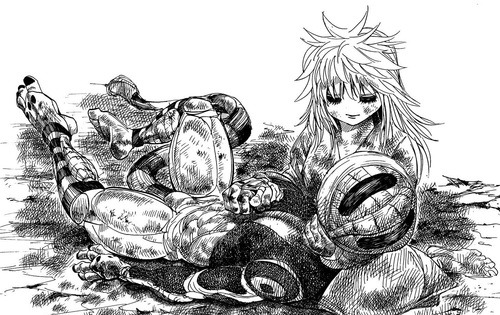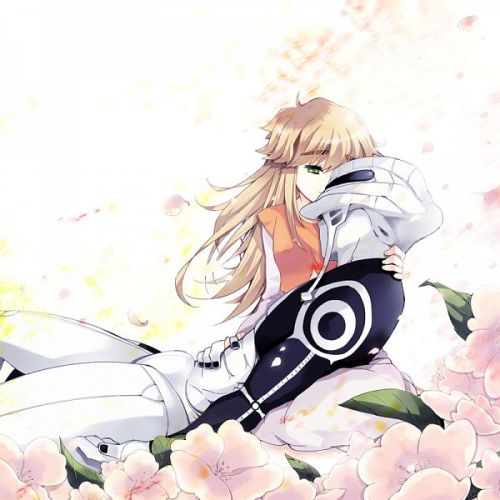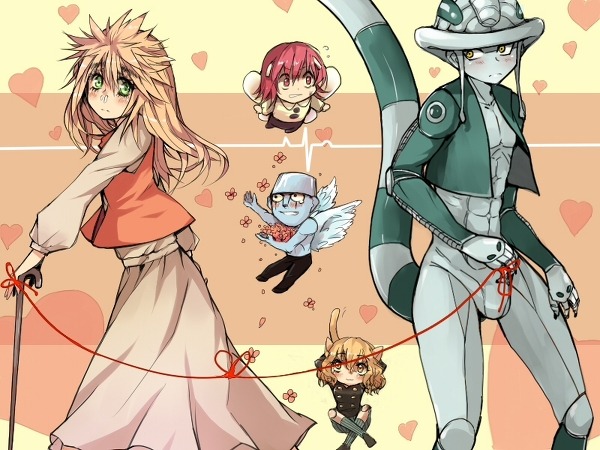Satouji said:
Actually my point was how easily human's thoughts can be manipulated. Have you realised that you're crying for a killer ?
Others have responded, but I want to make my own input. I'm not sure about your predispositions on morality, ethics, and justice, but I'm betting you're a strong supporter of retributive justice - that all crimes should be punished accordingly, no matter the circumstances. Barring the restorative vs retributive justice argument from the onset, I would say that for the circumstances regarding Meruem, there needs to be special considerations, as it's very hard to apply human notions of morality to something that lies outside of that boundary.
What first must be considered is that he's essentially an infant - he, along with most other chimera ants, have inherited human intellect and the ability to communicate as such from the moment of birth from residual memory. Not all ants, however, have memories of prior lives, and such "blank slates" are born with the ant instinct overpowering any notions of human society or values - it seemed especially strong in Meruem when he was born, because as all ants value most, his strength was the greatest, which meant however he imposed himself on the world was the only justice to chimera ants. Try to put yourself in Meruem's perspective at the onset - you've just recently emerged from the womb, and everything defers to you. You're all-powerful, and you know it. You know nothing of individualistic society and values, and you have no reason to care; you're an ant, and you must pave way in the world for your race. What Meruem lacked from the onset was perspective - he knew nothing of humanity, their values, or their worth; all he recognized was strength.
One month later, enter Komugi. We all know how their relationship pans out, and how Meruem comes to see the worth in humans. The point is, it took the miracle of prolonged human interaction and intimacy, something that directly contradicts the simple yet powerful drive of ants, to give him a growth in perspective; that his human intelligence and latent desire to sate his emotional and philosophical hunger could only be realized by interacting with another individual - someone that doesn't immediately deign to his every command. The point is, in the beginning, he was only following his nature - you can't tell me that the Meruem we saw at the end was the same monster driven by the desire to rule over all - he simply wanted to die playing a game with the human he had grown to admire and love, without an ounce of bitterness or malice.
If you've ever watched Star Trek:TNG, then you just may have seen the episodes involving the "Crystalline Entity". The Federation has the capability of destroying a being that has devoured the life-force of planets once and for all, but Captain Picard, whom holds the authority, has great reservations about doing so. Picard, quintessential humanist and model starfleet officer, upholds the value of all sentient lifeforms - in order to properly judge something, there must be an understanding between parties of what it is doing wrong. There was strong evidence to suggest that the Entity was sentient, but had no known means of communicating with humanoid lifeforms - how can we label it as evil or unjust when it has no idea that it's committing a crime to begin with? As Picard states, "The sperm whale on Earth devours millions of cuttlefish as it roams the oceans. It is not evil. It is feeding." It lacks the human perspective, and essentially, that's what Meruem lacked before he met Komugi, which is why he's a special consideration regarding his human killings before he intrinsically knew what it meant to be human. Morality, ethics, and justice are all products of society - aspects of social contract - something Meruem was strictly divorced from until he found Komugi.
Most forms of media use manipulative means to make us empathize with an antagonist without proper considerations of their development, but Meruem's was about as deliberate and exquisite as you could expect it to get. I love his character, and Togashi ended the arc with the beautiful irony of making us weep for what we were originally expecting to be the ultimate enemy of mankind, when in the end, it ended up representing all that is good about humanity. The tragedy of Meruem and the chimera ants in general is that they are born as living-contradictions - they cannot possibly hope to sate their dual natures in equal measure, so they must end up ultimately choosing that nature for themselves. Meruem made his choice in the end, and it took the very object that would kill him to make him see the desire of living as a human - that only when he lost his memory of Komugi could he truly feel what he had been missing; a feeling of profound emptiness without her. |
